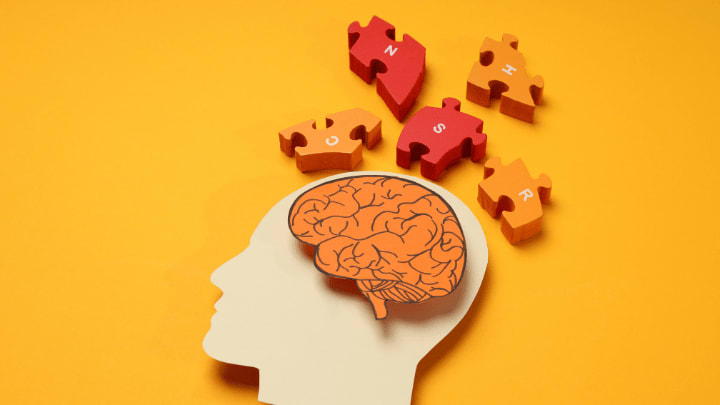Introduction to Memory Loss in Seniors
As you age, it's natural to experience some degree of memory decline. However, for many seniors, this cognitive impairment can be more severe and interfere with daily activities. Memory loss in the elderly is a complex issue with various underlying causes, ranging from neurological conditions to lifestyle factors. In this comprehensive guide, we'll explore the leading factors behind memory loss in seniors, shedding light on the intricate interplay between physical, mental, and environmental influences.
Understanding the factors that contribute to memory loss in seniors is essential for developing effective preventive measures and treatment strategies. By gaining insight into the underlying causes, you can take proactive steps to promote cognitive health and improve the quality of life for yourself or your loved ones.
Common Causes of Memory Loss in Seniors
-
Neurodegenerative Diseases: Conditions like Alzheimer's disease, Parkinson's disease, and Lewy body dementia can cause progressive memory loss and cognitive decline due to the degeneration of brain cells and the disruption of neural pathways.
-
Vascular Disorders: Stroke, transient ischemic attacks (TIAs), and vascular dementia can impair memory and cognitive function by restricting blood flow to the brain, leading to cell damage or death.
-
Traumatic Brain Injury: Head injuries, even those sustained earlier in life, can increase the risk of developing memory problems and cognitive impairment in later years.
-
Medications: Certain medications, such as those used to treat depression, anxiety, or high blood pressure, can have side effects that impact memory and cognitive function.
-
Vitamin Deficiencies: Vitamin deficiencies, such as B12, folate, and vitamin D, can contribute to memory loss and cognitive decline in seniors.
-
Depression and Stress: Mental health conditions like depression and chronic stress can affect memory and cognitive function, as they can impact brain chemistry and neural connections.
-
Sleep Disorders: Disruptions in sleep patterns, such as insomnia or sleep apnea, can interfere with memory consolidation and cognitive performance.
Lifestyle Factors that Contribute to Memory Loss
While genetics and neurological conditions play a significant role in memory loss, lifestyle factors can also contribute to cognitive decline in seniors. Adopting healthy habits and making positive lifestyle changes can reduce the risk of memory problems and promote mental well-being. Here are some lifestyle factors that can contribute to memory loss in seniors:
-
Physical Inactivity: Regular physical exercise has been shown to improve cognitive function and reduce the risk of memory problems. Engaging in moderate aerobic activities, strength training, and exercises challenging balance and coordination can help maintain brain health.
-
Poor Diet: A diet lacking essential nutrients, such as vitamins B6, B12, and folate, can contribute to memory loss and cognitive decline. A balanced diet rich in fruits, vegetables, whole grains, and lean proteins can provide the necessary nutrients for brain health.
-
Smoking and Alcohol Consumption: Smoking and excessive alcohol consumption have been linked to an increased risk of cognitive impairment and memory problems. Quitting smoking and limiting alcohol intake can help protect mental function.
-
Social Isolation: Social engagement and maintaining an active social life can stimulate cognitive function and reduce the risk of memory problems. Participating in social activities, joining clubs or groups, and staying connected with friends and family can promote mental well-being.
-
Chronic Stress: Prolonged exposure to stress can adversely affect brain function and increase the risk of memory problems. Practicing stress management techniques, such as meditation, yoga, or deep breathing exercises, can help reduce stress levels and promote cognitive health.
-
Sleep Disturbances: Insufficient or poor-quality sleep can impact memory consolidation and cognitive function. Healthy sleep habits, such as maintaining a consistent sleep schedule and creating a sleep-conducive environment, can support mental well-being.
Understanding Alzheimer Care in Edmond
Alzheimer's disease is a progressive and debilitating condition that affects not only the individual but also their loved ones and caregivers. There are various resources and support systems available to help individuals and families navigate the challenges of Alzheimer’s care in Edmond.
-
Memory Care Communities: Edmond is home to several specialized memory care communities that provide a safe and supportive environment for individuals with Alzheimer's or other forms of dementia. These communities offer personalized care, structured activities, and secure living spaces designed to meet the unique needs of residents with cognitive impairments.
-
Support Groups and Resources: Organizations like the Alzheimer's Association and local hospitals or communities offer support groups, educational resources, and counseling services for individuals with Alzheimer's, their caregivers, and family members. These groups provide a platform for sharing experiences, gaining knowledge, and receiving emotional support from others in similar situations.
-
Community Outreach and Education: Local organizations and healthcare providers in Edmond often conduct community outreach programs, seminars, and workshops to raise awareness about Alzheimer's disease, provide education on caregiving strategies, and promote early detection and intervention.
Promoting Memory Health in Seniors
Memory loss in seniors is a complex issue with various contributing factors ranging from neurological conditions to lifestyle choices. By understanding the underlying causes, you can take proactive steps to promote cognitive health and reduce the risk of memory problems.
Adopting a healthy lifestyle that includes regular physical activity, a balanced diet, social engagement, stress management, and good sleep habits can significantly contribute to maintaining cognitive vitality as you age. Additionally, seeking early medical attention and adhering to prescribed treatments can help manage conditions like Alzheimer's disease and other forms of dementia.



